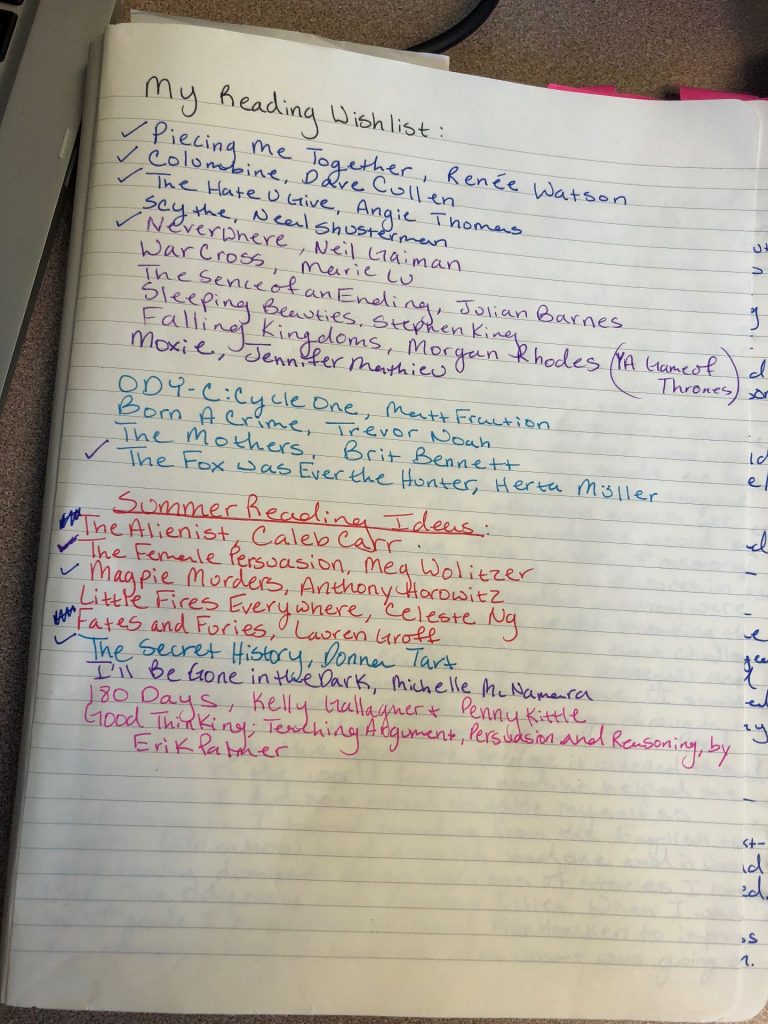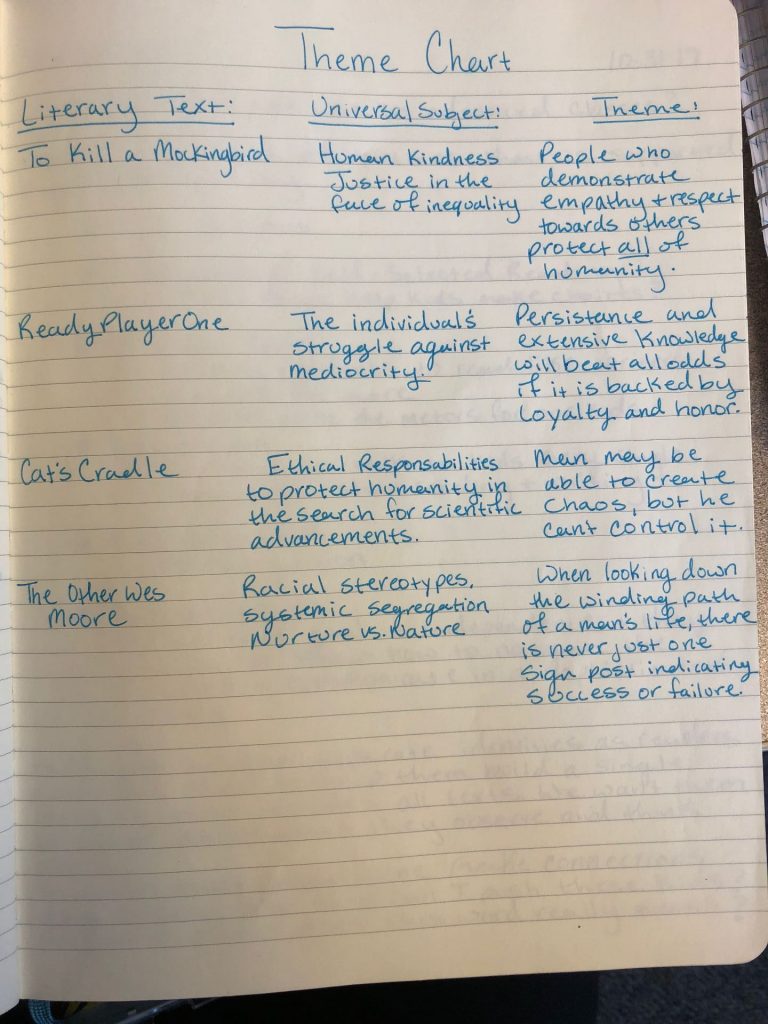I love this time of year! It is invigorating to watch student’s countdown the last few school days until summer while listening to all their plans for the much-needed break. With all this talk of road trips and poolside fun, it is easy to overlook the need to prepare for the upcoming school year.
That is why I encourage my young scholars to keep the momentum going with their writing and reading habits. I challenge you to incorporate these creative tips into your summer plans to strengthen the mind.
Tip #1 Just keep reading…
I like to start my summer planning by making a list of books I want to read over the break. I think it is important to maintain a wide variety of titles on your list.  Some books on my list are for professional development and academic growth, but I also include books for pleasure and lighter reading. The important thing is to find time for reading every day. Here are a few lists to help you get started.
Some books on my list are for professional development and academic growth, but I also include books for pleasure and lighter reading. The important thing is to find time for reading every day. Here are a few lists to help you get started.
- Books for the college bound
- Award Winners
- Ultimate AP Literature Book List
- NPR Book Concierge
- Zucha’s summer recommendations
Tip #2 Hold yourself accountable…
It is easy to set goals but it is much harder to follow through on these goals. You can establish accountability simply by talking to others about the books you are reading.
I like to encourage parents to read with their children and discuss the themes they discover along the way. Reading a book with another person is a very enjoyable and rewarding experience.
Set up mini book clubs with your closest friends. You can pick a day to meet at someone’s house or coffee shop to discuss the book. For most books, you can easily find discussion questions online, or as preparation for the upcoming school year, create your own questions using Socratic Seminar sentence stems.  I like to keep theme-charts in my writer’s notebook and I will collect quotes from the books I am reading to return to later or use as support in my writing.
I like to keep theme-charts in my writer’s notebook and I will collect quotes from the books I am reading to return to later or use as support in my writing.
Tip #3 Commit to a writing challenge…
The website, Movingwriters.org is challenging students and teachers to 100 days of writing! Rebekah O’Dell expounds on the importance of exercising your writing skills just like any other muscle in your body. Good writing can be difficult to achieve because it requires two things: a command of language and informed autonomous thought. The AP Language and Literature courses require students to read a variety of texts with a critical eye that establishes the author’s purpose but also considers a range of perspectives within the cultural and historical context. Commit to writing and reading every day to strengthen your critical thinking skills.
Tip #4 Feed your curiosity…
Take time this summer to learn new things and challenge your perspectives. Below you will find a few suggestions on how to start practicing looking at the world through a critical eye and joining the global conversation.
- Listen to podcasts like Radiolab or How Stuff Works to gain exposure to exciting ideas and new research.
- Follow online news sources that combine current events with academic rigor like The Conversation and The New York Times Learning Network.
- Follow your favorite authors on Twitter and ask them questions about their books.
- Visit local heritage, art, and the natural history museums.
